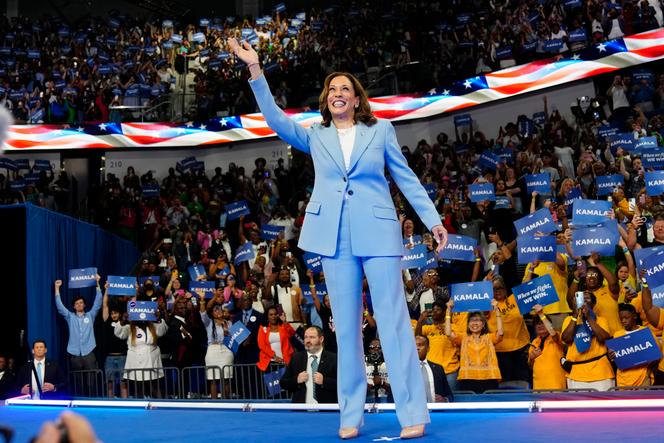


For the real launch of her campaign, on Tuesday, August 6, alongside her running mate for the first time, Kamala Harris, the Democratic candidate in the American presidential election, chose the city of Philadelphia. As well as being in the crucial state of Pennsylvania, it is also the founding city of the American Republic, the glorious city where the Constitution was written in the summer of 1787.
Democrats like to refer to the text's preamble, as much for its opening words "We the people of the United States" as for what follows: "In order to form a more perfect union." This expression is generally understood as aspiring to a form of social organization that the Founding Fathers, many of them slave owners, were unable to conceive: a multiracial democracy.
Barack Obama came to Philadelphia to give his "race speech" on March 18, 2008. He had been forced to do so by the controversy created by the remarks of his pastor, Jeremiah Wright, violently condemning discrimination against Blacks. The candidate for the Democratic nomination in the November election distanced himself from this vision, while pleading, as he did throughout his presidency, for a "more perfect union" that would see the US assert its geopolitical advantage over the rest of the world by setting an example of the fulfillment of the American dream.
Harris, who supported Obama from the outset but reportedly hates being compared to him, has so far stuck to a different approach. As the first female district attorney of San Francisco; the first female attorney general of California, the country's most populous state; and the first female vice president of the US, the candidate seems in no hurry to play the identity card. When she talks about her ceiling-breaking career, as she did in her victory speech after the 2020 presidential election, it's often to quote the words of her mother, Indian-born oncology researcher Shyamala Gopan: "You may be the first, but make sure you are not the last."
When it comes to the race issue, she'd clearly rather avoid the subject. At 59, Harris isn't tormented by her identity. She defines herself as "proudly American" and leaves it to others to pigeonhole her if they care to. "I am who I am," she told The Washington Post in 2015. "I'm good with it." In 2020, on the Los Angeles Times podcast Asian Enough, she expressed her annoyance at having to explain things about herself that one wouldn't ask someone else to detail. "I've never had an identity crisis," she said. "The frustration I have is that people think I should have gone through such a crisis and need to explain it."
You have 67.75% of this article left to read. The rest is for subscribers only.
